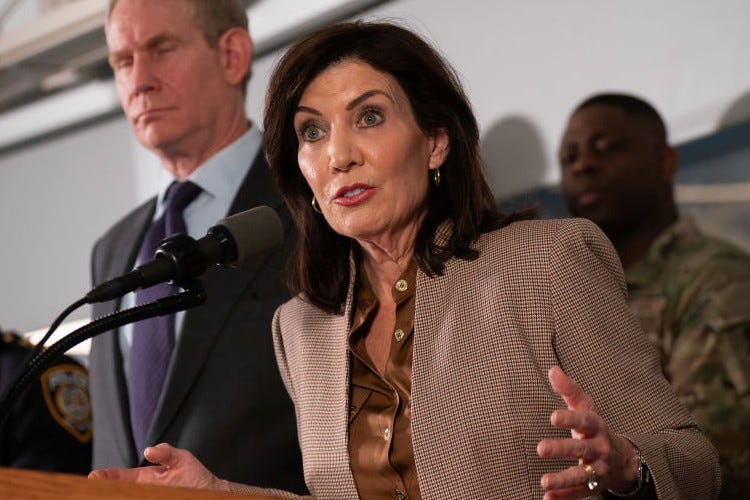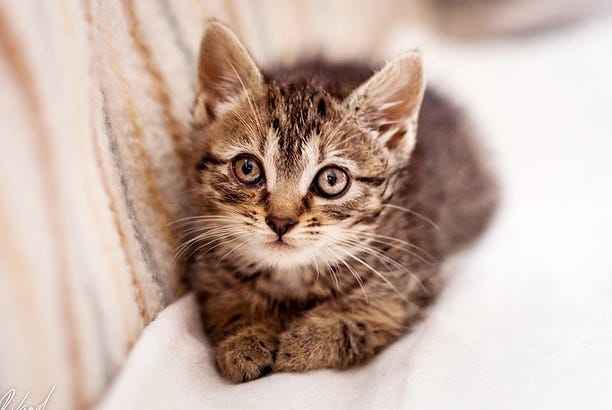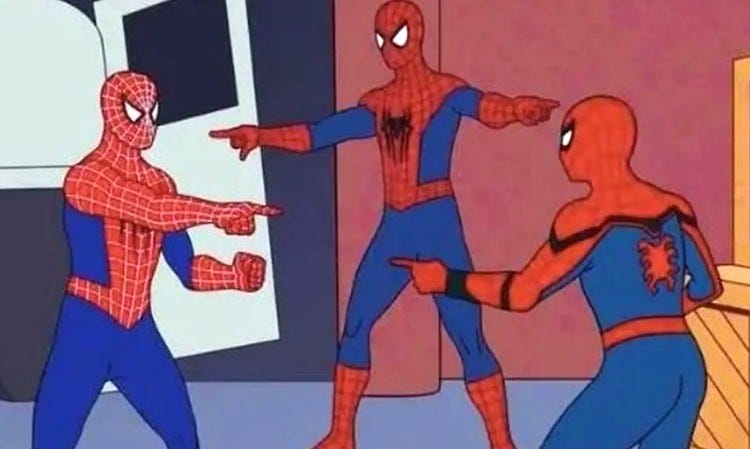Anti-Progress Sob Stories Should at Least Be Real
I'm not buying Kathy Hochul's stories about diners and hardware stores

Anyone who’s lived in New York knows that getting from point A to point B is a nightmare. The G train is basically a port-a-potty on wheels. The A/C/E has been undergoing track work since Babe Ruth was skinny. Driving is for masochists: I would rather let a buffalo use me as a Fleshlight than try to get through the Lincoln Tunnel at rush hour. If I was in the East Village and heard that the Dalai Lama was handing out eternal bliss in the West Village, I’d pass, because eternal bliss isn’t worth the hell of trying to go east-to-west on Houston Street.
Congestion pricing would help. Charging a fee to drive into the busiest parts of the city would thin out traffic, reduce pollution, and provide money for public transit. This is what London, Stockholm, and Singapore do, and I am not a “Stockholm-jumped-off-a-bridge-so-let’s-do-it-too” person, but I think congestion pricing makes sense. New York state passed congestion pricing in 2019, and it was set to go into effect on June 30, but last week, governor Kathy Hochul suddenly paused the program. And the reasons she gave illustrate one reason why it’s so hard to do anything in this country.
Here’s how Governor Hochul described her thinking in response to an admittedly obnoxious question from a reporter:
Ah yes: All those folks from the New York exurbs who like to pile into the car, spend an hour going through a tunnel or over a bridge — most of which already have tolls — inch across Manhattan at the pace of an obese sloth, and then pay $40 to park so they can eat at New York #1 Best Authentic World Famous Times Square Diner. It’s extra funny to think of these people coming in from New Jersey, a place where diners are so abundant that they dominate the landscape like kudzu in the south. If The Sopranos had ended with Tony saying “Instead of going to our regular Jersey diner — or the diner next to it, or the diner next to that one — let’s go to a diner in the Manhattan,” he would have been shot by his own family instead of by the guy in the Members Only jacket.
Also, let’s talk hardware stores. True story: When I moved to Hell’s Kitchen, I needed a hardware store, so I searched “hardware store”, and the first result was a gay bar called The Hardware Store. Nobody comes into Manhattan for hardware; you leave Manhattan for that — there’s a huge Home Depot on the Jersey side of the Holland Tunnel for exactly that reason. People run errands in the suburbs and come to Manhattan for nightlife like The Hardware Store, The Tool Shed, The Screw Box, The Drill Shaft, The Jackhammer, and the ol’ Nut & Bolt.1 And those fine establishments are well worth a $15 congestion fee.
When asked which diners she was talking about, Hochul mentioned three diners that are close to Grand Central Terminal — one is literally across the street. It’s odd to cite those restaurants as ones that would be hurt by congestion pricing, because the first thing New York planned to do with the revenue was buy badly needed rail cars to service Grand Central Terminal. And now, the New York legislature has ended its session without finding money for the rail cars. So, public transit into Midtown will continue to be maddeningly underserved, and Hochul’s beloved Pershing Square Cafe — which she portrayed as a Mom & Pop establishment but is actually a “clubby, classic cocktail bar” (their words) with $22 appetisers — will continue to serve its car loads full of plain ol’ blue collar folk who enjoy a $35 seared tuna nicoise paired with an $18 glass of rioja crianza.
Why did Hochul tell such obvious lies? Probably because every story needs a sympathetic protagonist. Policy decisions are easier to justify if you can point to some sympathetic sad sack — ideally a veteran or a person who has a disability that doesn’t skeeve people out — who will be hurt by the decision. The main people hurt by congestion pricing are suburban commuters, who certainly aren’t villains, but who also aren’t especially sympathetic. Better to invent a guy who owns a hardware store at the top of the Chrysler Building, and who won’t be able to buy insulin if he can’t sell penny nails to his customers from Paramus.2
Some version of Hardware Store Guy shows up in all sorts of policy debates. Even when he’s real — and he often is, because change inevitably produces winners and losers — he distorts our policy decisions. New buildings change property values, free trade costs people their jobs, and environmental rules hurt businesses. The main thing Hocul did wrong was that she didn’t search hard enough for her sad sack; surely, there’s a blind nurse or quadriplegic construction worker out there who will be hurt by congestion pricing. The people who are hurt by change are real, and though this article is about how we overvalue their concerns, we shouldn’t undervalue their concerns, either. Their concerns should be given appropriate weight in our decision-making.3
But their concerns shouldn’t dominate our decision-making. Unfortunately, they often do: Narratives built around people suffering harm today have more impact than theoretical stories of people whose lives will be improved at a future date. Sometimes, the person being harmed isn’t even a person: Some people oppose wind turbines because they kill birds. And turbines do kill birds: They strike down a few hundred thousand birds a year (though for context, cats kill about a billion birds a year). That’s bad — I’m not pro-bird murder — but, obviously, that should be weighed against the exponentially larger number of birds that will be killed by climate change. When everything is factored in, windmills seem quite obviously good for birds — and also humans, which are a pretty good species, too — but some people can’t get past the mental image of a majestic condor with its head bashed in. And I get that, but we should have more clarity about which position is the anti-bird murder one.

To make matters worse, people who benefit from change often don’t know who they are. Nobody thinks “I’m employed party due to efficiencies afforded by free trade”, even though that’s often true. You can’t build a movement behind innovations that happened yet, and no-one goes to a city council meeting to argue for a building that they might live in ten years from now. With congestion pricing, some of the biggest beneficiaries are kids who will have a lower risk of respiratory illness. But bad news: Those wheezy little fuckers don’t vote. Nor will an asthmatic eight year-old ever accost Kathy Hochul in a diner, though an adult who wants to keep his $15 just might.
This is just how things go. But I think we do a bad job of recognizing this dynamic and correcting for it. Media bear a lot of the blame: They run a lot of “the old Union Pacific doesn’t come by here much anymore” stories, because those stories tug at our heartstrings. When we see someone who will be harmed by change, it’s tempting to give them what they want, because looking them in the eyes and saying “tough break” seems like a dick move. But we should recognize that the actual dick move is to harm a large number of people we can’t see in order to placate a small number of people we can.
If we can’t get better at balancing tradeoffs, then I insist that the characters in our sob stories at least be real. Manhattan-diner-owner-who-woos-outer-borough-residents-with-her-homemade-pies is not real. Korean-War-vet-hardware-store-owner-who-lures-customers-in-from-Hempstead-with-his-reasonable-prices is not real. I don’t know why Kathy Hochul told these particular stories. Because there are real hard luck stories out there that we’re prepared to give way, way too much weight in our decision-making.
Holy shit: Nut & Bolt, that’s a perfect name for a gay bar. Consider that name trademarked, and I’m looking for investors.
I suspect that Hochul is thinking of a real person (she said “the guy featured on the news”, whom I have not been able to find), and she alluded to a real issue about small business owners in Manhattan paying more for deliveries. But Hochul also mentioned “his New Jersey customers”, and that’s the part I don’t buy.
And, to the extent practical, policies should exist to mitigate their losses.







Or what about Larry, who owned a prosperous mom-and-pop lead refinery before heartless government bureaucrats demanded that gasoline and paint could no longer contain lead, thus destroying his customer base and driving him out of business? Now Larry is selling pencils on a corner like some Dickensian urchin. We don't need more Larrys!
I may be one of the few people on the planet who hasn't finished watching The Sopranos (I am on season 5). So I will forgive you for spoiling the ending, especially since the rest of the article is brilliant and includes an adorable photo of a furry génocidaire (no, not Kathy Hochul).